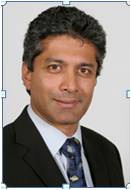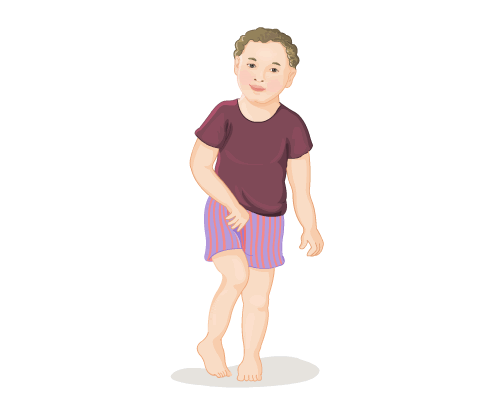Introduction to Development Part 2: Assessment and Referral course


This session will outline the developmental assessment of children up to the age of five.
Learning objectives
- By the end of this session you will be able to:
- Provide a first line child developmental assessment, using the personal child health record (‘red book’) as part of the community health partnerships programme
- Describe different types of standardised assessment tools
- List the pitfalls in interpreting information on development
- Identify who to ask and when to refer
This session will provide examples of developmental concerns, important findings that should prompt further analysis, highlight some of the difficulties encountered in the developmental workup, and look at onward referral.
Before commencing this session you should complete the following HCP sessions:
- 01_01 Introduction to the Healthy Child Programme (402-0001)
- 02_03 Using the Personal Child Health Record (PCHR) (402-0005)
- 03_01 Families in the UK (402-0006)
- 03_03 Hard to Reach and Seldom-heard Families (402-0009)
- 06_01 Introduction to Development Part 1: Description and Influences (402-0022)
- 11_01 Overview and Principles of Screening (402-0070)
You should also have an understanding of how to approach developmental history taking and paediatric examination.
Dr Dilip Nathan currently works as a Consultant Paediatrician at Nottingham University Hospitals Trust where he jointly leads a team of Community Paediatricians. He is Designated Paediatrician for Unexpected Infant Deaths for Nottingham and Undergraduate Coordinator of Community Paediatrics at the University of Nottingham Medical School where he regularly lectures.
Dr Nathan’s current responsibilities involve directing the Child Health Surveillance programme for GP trainees across Nottingham and lecturing on the Advanced Paediatric Skills course (Nottingham Walk-in Centre).


Dr Nadya James is a Higher Specialist Paediatric Trainee in the East Midlands Deanery. Based in Nottingham: she works at the Child Development Centre, Queens Medical Centre, and in the community. Her interests include medical education, and she is involved in the training of undergraduates, junior doctors, and allied professionals.
- End of Life Care | Spiritual care | Understanding ...
- Posted By eIntegrity Healthcare e-Learning
- Posted Date: 2025-01-10
- Location:Online
- This session considers the meaning of spiritual need and distress. It also addresses how to assess the spiritual needs of those receiving end-of-life care, and when and how this can be achieved. This session was reviewed by Andrew Martin and Richard Kitch
- End of Life Care | Spiritual care | Spirituality i...
- Posted By eIntegrity Healthcare e-Learning
- Posted Date: 2025-01-10
- Location:Online
- This session explores how collaboration with the local community can help services ensure that spiritual care reaches all the people in end of life care who could benefit from it. This session was reviewed by Rebecca Whiting and Sarah Hanrott and last upd
- End of Life Care | Spiritual care | Spirituality a...
- Posted By eIntegrity Healthcare e-Learning
- Posted Date: 2025-01-10
- Location:Online
- This session will look at what health and social care professionals mean when they talk about 'spirituality' and outline how this understanding is central to the philosophy of end-of-life care. This session was reviewed by Simon Betteridge and Richard K
- End of Life Care | Spiritual care | Spirituality a...
- Posted By eIntegrity Healthcare e-Learning
- Posted Date: 2025-01-10
- Location:Online
- This session aims to help you develop an understanding of the importance of effective team working for the delivery of spiritual care and the importance of leadership, task, and respect for other team members and the disciplines they represent. This sessi
- End of Life Care | Spiritual care | Spiritual reso...
- Posted By eIntegrity Healthcare e-Learning
- Posted Date: 2025-01-10
- Location:Online
- In this session you will explore the meaning of the term spiritual resources and consider the relevance of them to a dying person’s quality of life. This sesson was reviewed by Rebecca Whiting and Sarah Hanrott and last updated in June 2023.








